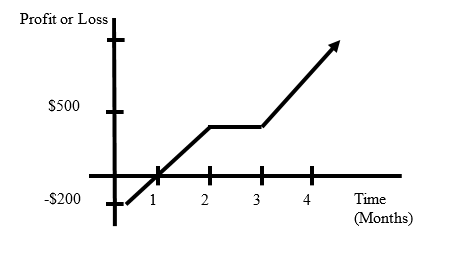Business Case Overview
The current business case concerns a bakery company, which has selected an unprofitable development course and resulted in return on investment (ROI) losses. Therefore, it is essential to analyze the potential problems in the bakery industry and suggest a comprehensive business plan to regain ROI. In general, most financial problems are associated with poor planning of pricing, HR, segmentation, targeting, positioning, and marketing strategies (Hill, 2019). Consequently, it is essential to renovate the data analysis methods. The old-fashioned decision-making in management is frequently inaccurate and might lead to detrimental outcomes. Fortunately, there is a large variety of accessible data analysis tools on the market that could be used for more thorough financial management. Ultimately, it is crucial to readjust the said operations to regain ROI.
Pricing and Positioning
Consequently, in the case of relatively small bakeries, pricing and positioning are the two primary factors that define the success of the business. It is essential to conduct market research and identify all the potential competitors in the area. Based on the acquired data, it is possible to choose the positioning niche and adjust the pricing strategy accordingly. For instance, traditional food, diet alternatives, non-allergic products, and other options could help the bakery stand out from the rest of the local competitors and improve the overall ROI.
Business Project
The core concept of the current business project is to emphasize healthy bakery options. In 2021, a large number of customers demonstrated an increasing preference for organic and low-calorie products (Morgaine, n.d.). Consequently, the healthy options also include low-carb, low-sugar, natural ingredients, and gluten-free production (Zabal-Mendoza, 2019). In other words, the shift toward healthy bakery and organic products will create a positioning niche for the company and build a loyal customer base.
Concerning the financial part of the project, the initial expenses would not change significantly; however, combined with a comprehensive marketing strategy, the company might experience a positive ROI development. The cost of the project primarily consists of supplier replacement, additional products (e.g., blueberries for healthy toppings or nuts for high-protein food), and training of bakers. Depending on the size of the bakery, the approximate initial cost could range from $200 in a small business to thousands of dollars in a large company. The estimated representation of the profits is presented below:

Contrary to common beliefs, healthy food options are not necessarily more expensive than the traditional analogs, and a large part of the initial costs covers the personnel training. The price of the production slightly increases primarily due to the prolonged and more complex cooking process (Morgaine, n.d.). For instance, a piece of traditional bread with the price of $3 would be replaced by an organic option with the price of $5 due to the time investment of cooking.
Furthermore, the demonstrated projections are based on the existing bakeries that have become the center of attention, specifically due to eco-friendly and healthy production. For instance, Baking Therapy – a subsidiary branch of Healthy Options – has attracted a large number of customers by promoting keto bread and low-calorie options (Zabal-Mendoza, 2019). Ultimately, the emphasis on healthy options is generally a safe option and might significantly increase the overall profits of the bakery and help it regain ROI.
Reference List
Hill, B. (2019). The weaknesses of a bakery company. Web.
Morgaine, B. (n.d.). Increase revenue and boost bakery sales with these 9 tips. Web.
Zabal-Mendoza, T. (2019). The biggest healthy options store has a bakery that sells keto bread, pastries + more. Web.